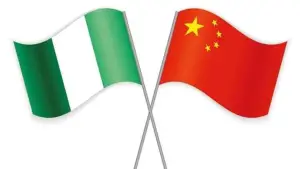Former presidential candidate Peter Obi has called for the urgent development of Northern Nigeria's vast agricultural potential, stating that the region could generate more revenue than the country currently earns from oil.
Speaking at the National Political Consultative Northern Group Meeting, Obi highlighted the underutilization of land resources in the North, drawing comparisons with countries that have achieved significant agricultural success with smaller land areas.
Comparing Northern States to Global Agricultural Powerhouses
Obi pointed out that Niger and Borno states combined have approximately 147,100 square kilometers of land, nearly equivalent to Bangladesh's 148,600 square kilometers. Yet Bangladesh, with its 170 million population, produces 50-60 million tonnes of rice annually as the world's third-largest rice producer, while Nigeria's entire rice production stands at just 5-6 million tonnes.
"Nigeria today produces about 10% of Bangladesh's rice production," Obi stated, emphasizing the stark contrast despite Nigeria's advantageous land resources.
He also compared Taraba State's 54,400 square kilometers to Sri Lanka's 65,610 square kilometers, noting that Sri Lanka generates $1.5-2 billion annually from tea exports. Obi suggested that Taraba has similar potential for tea and coffee production but remains largely underutilized.
In another striking comparison, Obi mentioned that Northern Nigeria's land area of over 720,000 square kilometers exceeds Ukraine's 600,000 square kilometers by 20%. Despite this advantage, Nigeria accepts grain donations from war-torn Ukraine.
Educational Challenges and Opportunities
Beyond agriculture, Obi addressed the educational crisis in Northern Nigeria, where the majority of the country's 20 million out-of-school children reside. After visiting various Almajiri schools across the North, he advocated for integrating conventional subjects into religious education.
"If children can memorize the Qur'an, then in those same spaces, they can also be taught English, Mathematics, and Science," Obi remarked, citing successful educational initiatives in parts of Kaduna State.
He emphasized that these children should be viewed as valuable human assets rather than problems, suggesting that proper investment in education could transform entire communities.
Call for Responsible Leadership
Obi called for greater fiscal responsibility, suggesting that the ₦7 trillion allegedly discovered in a padded budget could be redirected to address insecurity, education, healthcare, and agricultural development.
"Our leaders must have compassion and start investing in humanity and the people," he concluded, urging a shift toward policies that prioritize human development and economic diversification.
The former presidential candidate's address underscores the growing calls for Nigeria to leverage its agricultural potential as a pathway to economic diversification and reduced dependence on oil revenues.













